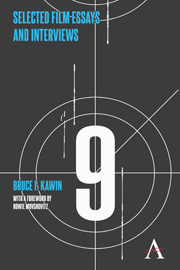Book contents
8 - Welcome to L.A.
from PART III - REVIEWS
Published online by Cambridge University Press: 05 May 2013
Summary
This review was published by Take One in 1977, shortly after Altman and Rudolph appeared in Denver for a preview of the film. I had brought a class to the screening, and one of the students asked about the ways the movie portrayed women. That led to more questions, some from me. Rudolph was calm, but Altman got angry.
Robert Altman (producer), Keith Carradine (actor), and Alan Rudolph (writer-director) pulled into Denver not long ago with their new film, Welcome to L.A., an extremely well-acted and -photographed piece that is not, finally, worth watching. The question/answer/diatribe session that followed the film, however, was revelatory. By the time this review appears, Pauline Kael will probably have lived up to her role as Altaian's circus-barker and hailed Welcome as a challenging work by a coming talent; Jay Cocks, in Time, has already done so; so I'll ask Take One to publicize my two cents. A “personal” film is, after all, entitled to a personal response.
As a native of Los Angeles, I find it silly to call L.A. “the city of one-night stands.” As a portrait of life in that city, Family Plot is more accurate and Shampoo more entertaining, but what is especially off-base here is the notion that the hero's very personal problems are an aspect of the city he happens to be visiting. Carradine here is a creature of one-night stands, encouraged by Rudolph to project his limitations onto the structures—and especially the women—that surround him. This practice makes sense in an Expressionist context, but here is simply the mark of an adolescent and sexist sensibility.
- Type
- Chapter
- Information
- Selected Film Essays and Interviews , pp. 63 - 65Publisher: Anthem PressPrint publication year: 2013

